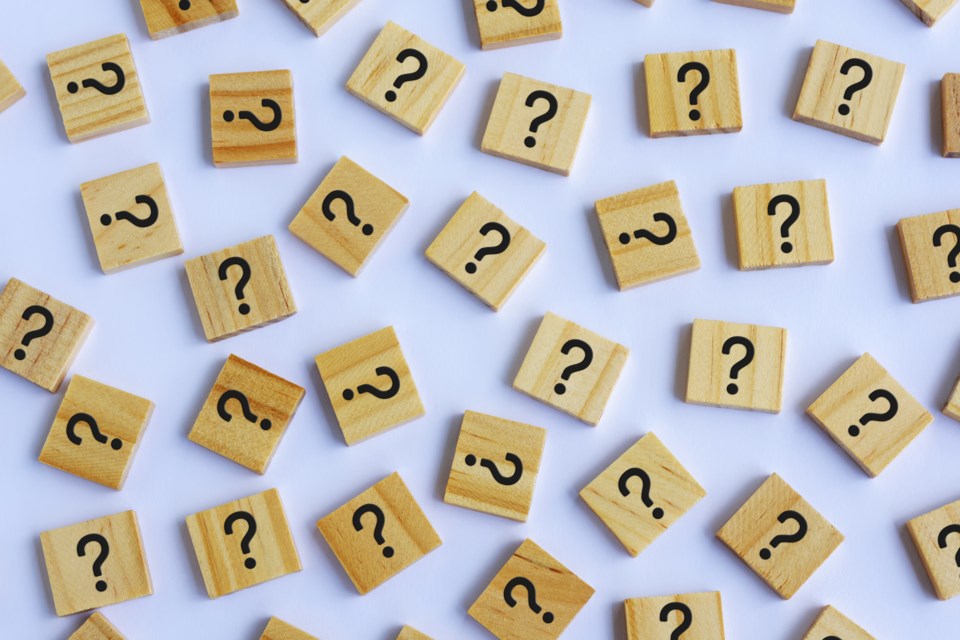Do material problems ever require immaterial solutions?
That seems quaint, but three centuries into the Age of Reason, with instantaneous access to all knowledge, we are not more wise, practical, nor empathetic: in fact, precisely the opposite. Our leaders and commissars are stumped as preferred methods fail to improve us or society. But we who hold onto old notions of metaphysics are ready and willing to offer some new diagnostic questions to puzzle out a cure.
Do I believe that truth is relative? We must understand that this is not just a question of 2+2=4 or the Orwellian 5, though I’d happily point out that much of our world is operating on the latter. No, this is a fundamental inference, that true and false are opposites and have a bearing on everything from right belief to right action or their inversion. Without our sense of gravity, we become ill with vertigo; is it possible that the lack of objective truth could yield a similar result?
Do I believe that man is the sum of his parts? If we really are just ugly bags of salty water, there is no reason to show our species any peculiar love nor loyalty. It follows therefore that humans have no inherent dignity, just traits and behaviors that group us together into many strata, hierarchies, or sections of the bell curve, based on both immutable as well as mutable characteristics. Are we prepared for what tribalism and self-segregation will do to our society?
Do I believe that life has no purpose? Forget the species, one must live with one’s own anxieties! The world is saturated with the mantra that so long as what you do makes you feel good, hurting as few people as possible, your desire and action cannot be judged. Yet daily a compounding amount of evidence shows that total license to pursue vice and fantasy does not make us happy. Can we really settle for unsatisfying distractions before a meaningless death?
Do I believe that man has free will? Much of our society no longer believes that humans have the ability to choose. Instead, we follow patterns of behavior dictated by a combination of environmental stimuli and chemical reactions in the brain, all of which creates a feedback loop. Thus there can be neither virtue nor vice, since all actions are predetermined, from self-abuse to self-sacrifice. Punishment and reward have no place in that world - do we want to live that way?
Do I believe human nature is essentially good or evil? That’s a compound question, but it is begged by what has been mentioned already. Indeed, competing myths about man are at war in our time: one claims we are a scourge upon the planet and cancerous to all life, the other that we are the only hope for consciousness throughout the galaxy. Essentially, man is viewed either as a tick or a titan. But is being self-immolated or self-glorified the only choices for our species?
Do I believe the material realm is all that exists? That is what our society claims. But the briefest glance at history tells us that an unbelieving polity is totally novel. Our brave new world offers cradle to grave services complete with orders of life whose express intent is paradise on earth, capped off with the possibility of cryogenics for the body or social media life after death for your personality. Why do material beings require such spiritual marketing for consumerism?
Lastly, am I willing to consider an alternative conception of myself and society? It’s been said, “those with eyes let them see; those with ears let them hear.” One need not be a social scientist nor psychoanalyst to see that our world is falling apart. And while I have a bias, I am not overreaching by inviting anyone to sit back and cross-examine our current malaise. Indeed, who would not conscientiously object to the rampant unhappiness in ourselves and our world?
I plan to explore this final set of questions further throughout Lent. It is a fool's hope to think this late into our civilization’s collapse we might still be saved. But despair is not an option for us who took soot on Ash Wednesday. Instead, we must “repent and believe in the gospel.”
Nathan Giede is a Prince George writer.



